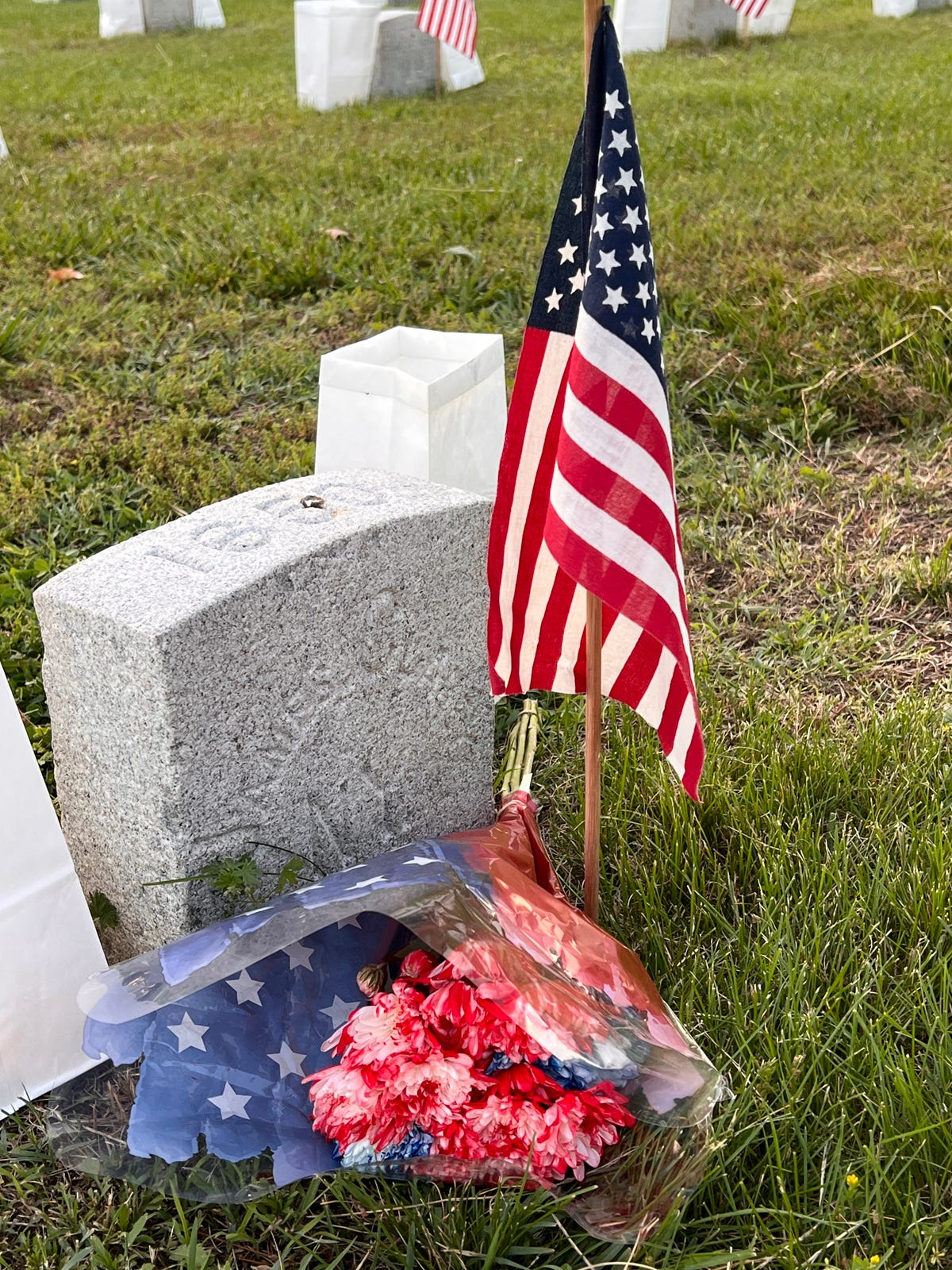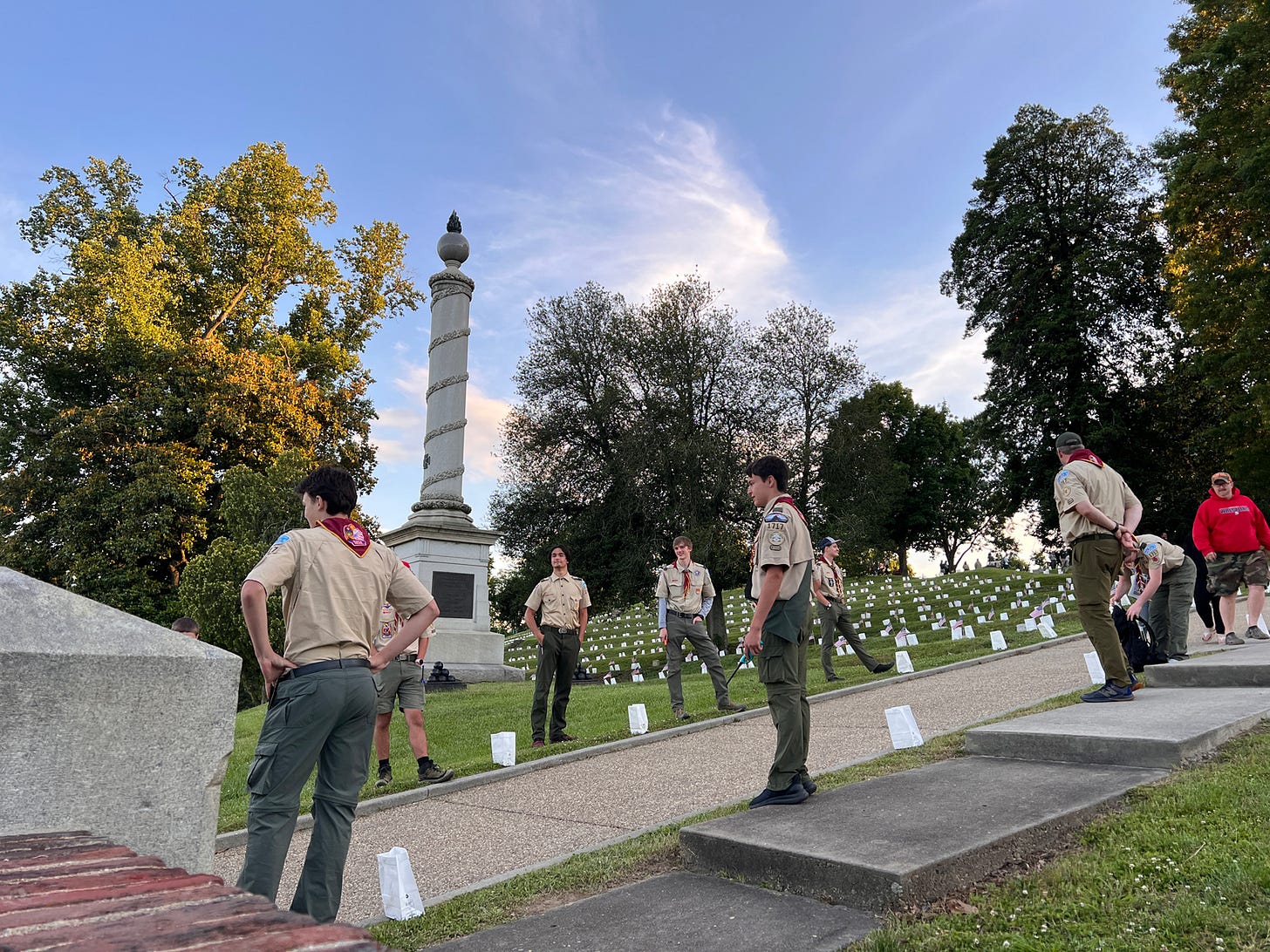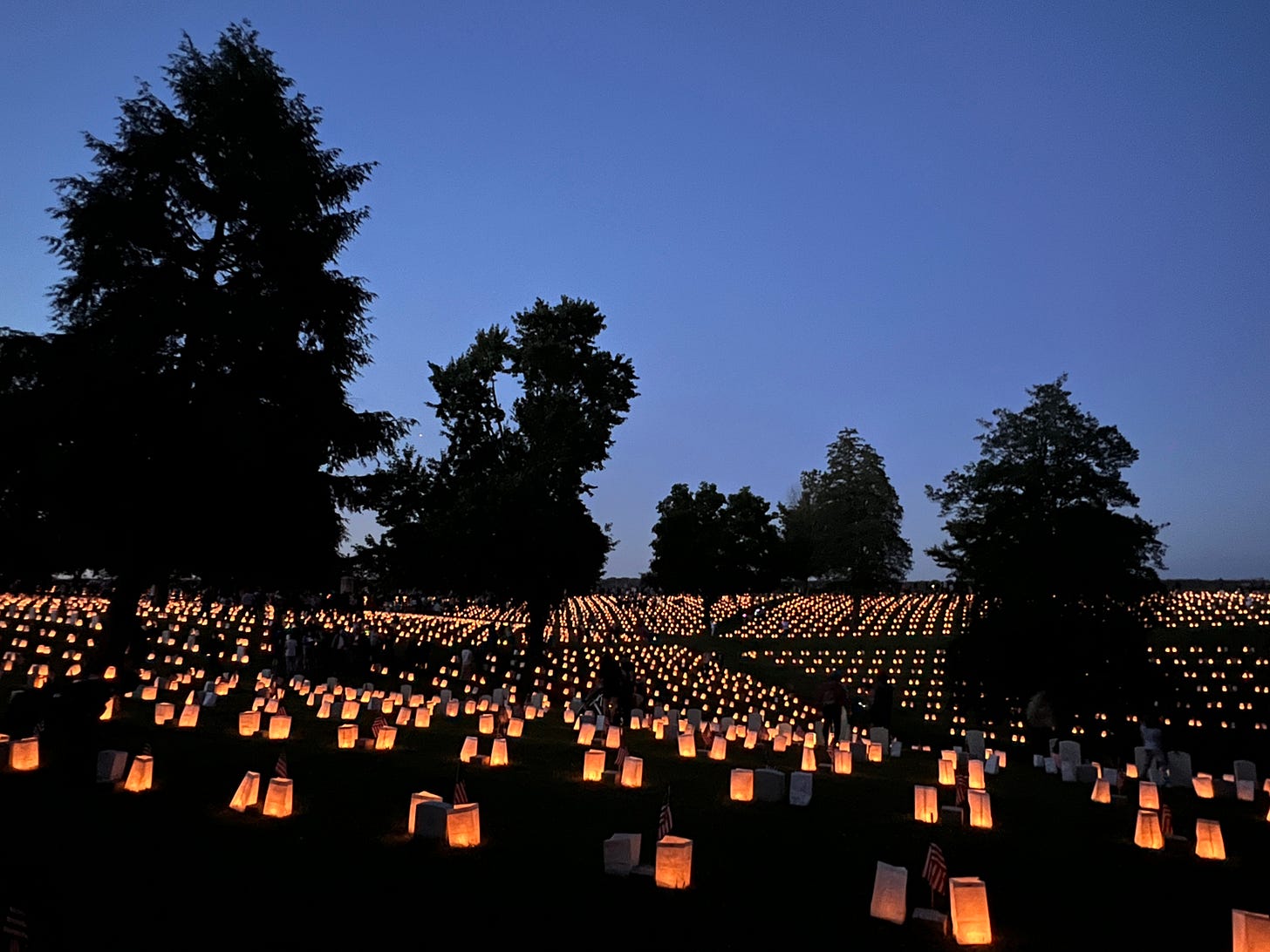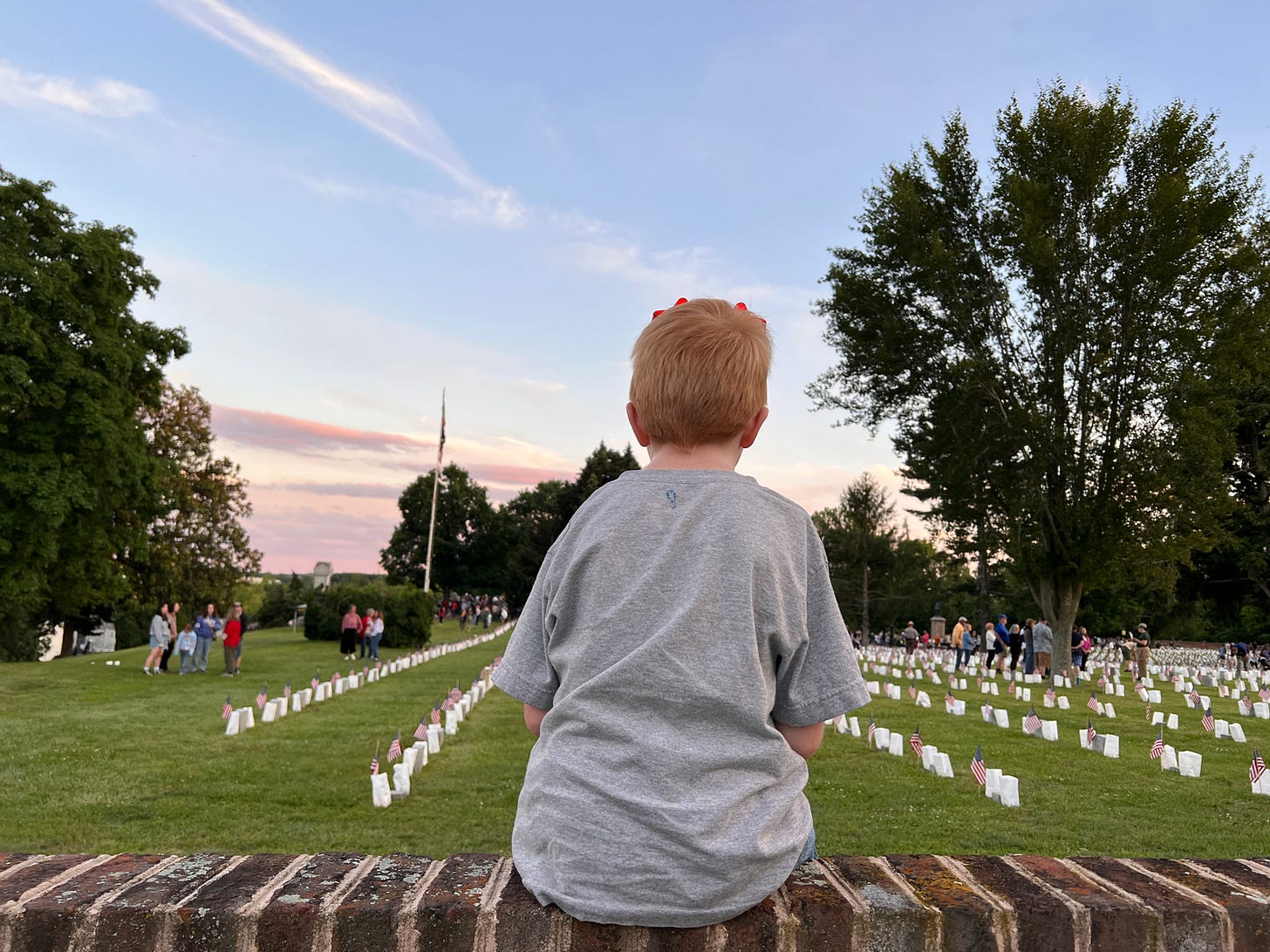FROM THE EDITOR: Memorial Day, Racing, and Re-discovering America
By Martin Davis
EDITOR-IN-CHIEF
Email Martin

Major holidays are civic rituals that provide an opportunity for us to reflect upon, enjoy, and engage with those things that make us American.
The events that rituals spawn are for most, understandably, something to simply walk through. During Memorial Day, for example, we wave flags and cheer veterans and quietly remove our hats at public events for prayers remembering those who never came home. And for those couple of moments we are focused on that. But when the cue is given — for race fans this weekend, it’s, “ladies and gentlemen, start your engines” — we are on to the next thing, not thinking about the ritual for another year.
In stable times, those few moments are enough to remind people of their good fortune to live in America.
These are not stable times, however. The Trump administration’s assault on freedom of thought, abject cruelty in handling deportations, vile language used to describe those who dare to challenge him, and thoughtless destruction of the social safety net will harm tens of millions in the short term (See this very good analysis in the Wall Street Journal). In the long-term, its assault on science could well spell the end of American leadership in innovation. The Economist puts it this way.
“The assault on science is unfocused and disingenuous. Far from unshackling scientific endeavour, the administration is doing it grievous damage. The consequences will be bad for the world, but America will pay the biggest price of all.”
While these efforts rightly draw a great deal of journalistic attention from across the political spectrum, it’s also true that our growing tribalism and anger is preventing us from seeing what unites us.
In the eyes of some, all Republicans are MAGA and not to be trusted. This is a complete misreading of the dynamics within that party, and the coming struggle over what the party will become after Trump leaves in 2028.
This is all playing out against a backdrop of growing political violence in America that has been in ascension for the past decade. From the Journal of Democracy:
An unprecedented number of election administrators received threats in 2020—so much so that a third of poll workers surveyed by the Brennan Center for Justice in April 2021 said that they felt unsafe and 79 percent wanted government-provided security. In July, the Department of Justice set up a special task force specifically to combat threats against election administrators.
From death threats against previously anonymous bureaucrats and public-health officials to a plot to kidnap Michigan’s governor and the 6 January 2021 attack on the U.S. Capitol, acts of political violence in the United States have skyrocketed in the last five years.
More recently, the tragic murders of United Health Care’s Brian Thompson, as well as Yaron Lischinsky and Sarah Lynn Milgrim this week in Washington, D.C., should be startling reminders of the treacherous ground we are now on.
Our level of disconnectedness is arguably higher now than at any time since the 1930s, when many of the same social issues roiled American society.
In such times as these, the rituals that unite us can quickly deteriorate to irrelevance.
Forcing people to follow rituals (standing for the pledge of allegiance, for example) is no solution. When people are forced to follow rituals, we move no closer to healing the wounds that currently inflict us as a people.
The true power of rituals rests in the abstract. Their value is in their ability to help us look deeper inside ourselves and understand the glue that binds us together as a people.
That cannot be legislated or forced on people. It is a practice that must be nurtured and passed on to people.
And it happens at the local level.
Reflecting
Memorial Day is above all a day for collective mourning — it is the time when we are asked to step back and recall those who gave the ultimate sacrifice in the service of our nation.
Our region offers numerous ways for people to think hard about the cost of Freedom. None, perhaps, are more moving that the setting of luminaries at the Fredericksburg National Cemetery, which occurs annually.
More than something to simply see and move on from, park rangers and docents tell visitors the rich stories of a few of the more than 15,000 U.S. soldiers buried there, most of whom served in the Civil War. These stories force us to stop and truly contemplate what sacrifice means.
Far too few of us today grasp the sacrifices that some generations are asked to make in times of national challenge. During WW II, roughly 9% of the population served in the military. However, “A Pew Research Center report in 2012 noted that just 0.5 percent of the American population had served on active duty at any given time during [the post-9/11 years]; the number was 9 percent at the height of World War,” according to an article by Mark Berman.
This Memorial Day, reflect on the sacrifices far too many of us ask and expect of far too few of us.
We owe all who served — and especially those who paid the ultimate price — to begin teaching our children what that sacrifice looks like. And to realize that we as a people need to begin taking on a larger share of the load.
Enjoying

It’s not uncommon during Memorial Day to hear people innocently suggest that the sacrifice of those in uniform was carried out in part to make it possible for us to enjoy the things families traditionally do on this official kick-off of summer.
I’m confident that if people thought a bit deeper about that syllogism, they would rephrase.
No one goes into battle to save picnics and auto races.
They do so to preserve our foundational freedoms, and in the heat of battle they are there not so much for us, but for the person to the left and their right.
The freedoms such sacrifice protect do lead to wonderful, joyful events, like the Indianapolis 500 — a staple of my family’s Memorial Day weekend. And we should fully embrace these opportunities and relish the sheer joy they bring.
The vigor and joy of auto racing this weekend — whether your eyes, like mine, will be focused on Indianapolis or just south of us in Charlotte — are marvels that showcase so much of what makes America great.
Hundreds of thousands of people setting aside personal animosities to sit side-by-side and cheer on their heroes. The innovations that make race car driving safer than it’s ever been and, by extension, makes the cars we drive safer than they’ve ever been. And the spirit of risk that has long defined Americans — a people who historically have been willing to risk everything to make their communities a better place to live.
The pure joy of living in America should help all of us understand that we are bound by so much more than what separates us. Embracing more of the joy, meeting those one might not normally interact with, is an important part of not getting sucked into the dysfunctional aspects of tribalism that are tearing at our social fabric.
Engaging

These freedoms that so many have sacrificed for, however, also come with heavy responsibility — notably, to be engaged with our government by, at a minimum, voting.
Locally, we should be willing to do more. Volunteer for a campaign. Join groups that are working to bridge the divides that separate us.
These are not sacrifices. They are the price of citizenship.
Small acts by one person — such as knocking on doors or writing a letter to the editor to express one’s thoughts on the issues of the day that matter — may not feel like much. But when everyone is so engaged, monumental changes will occur.
Today, reflect on those who sacrificed to make our country what it is. Enjoy the fruits of a free society. And take steps to engage in our politics.
These are unstable times. Our civic rituals are reminders of what it takes to find our way back to stability.
Support the Advance with an Annual Subscription or Make a One-time Donation
The Advance has developed a reputation for fearless journalism. Our team delivers well-researched local stories, detailed analysis of the events that are shaping our region, and a forum for robust, informed discussion about current issues.
We need your help to do this work, and there are two ways you can support this work.
Sign up for annual, renewable subscription.
Make a one-time donation of any amount.
Local Obituaries
To view local obituaries or to send a note to family and loved ones, please visit the link that follows.
This article is published under Creative Commons license CC BY-NC-ND. It can be distributed for noncommercial purposes and must include the following: “Published with permission by FXBG Advance.”












